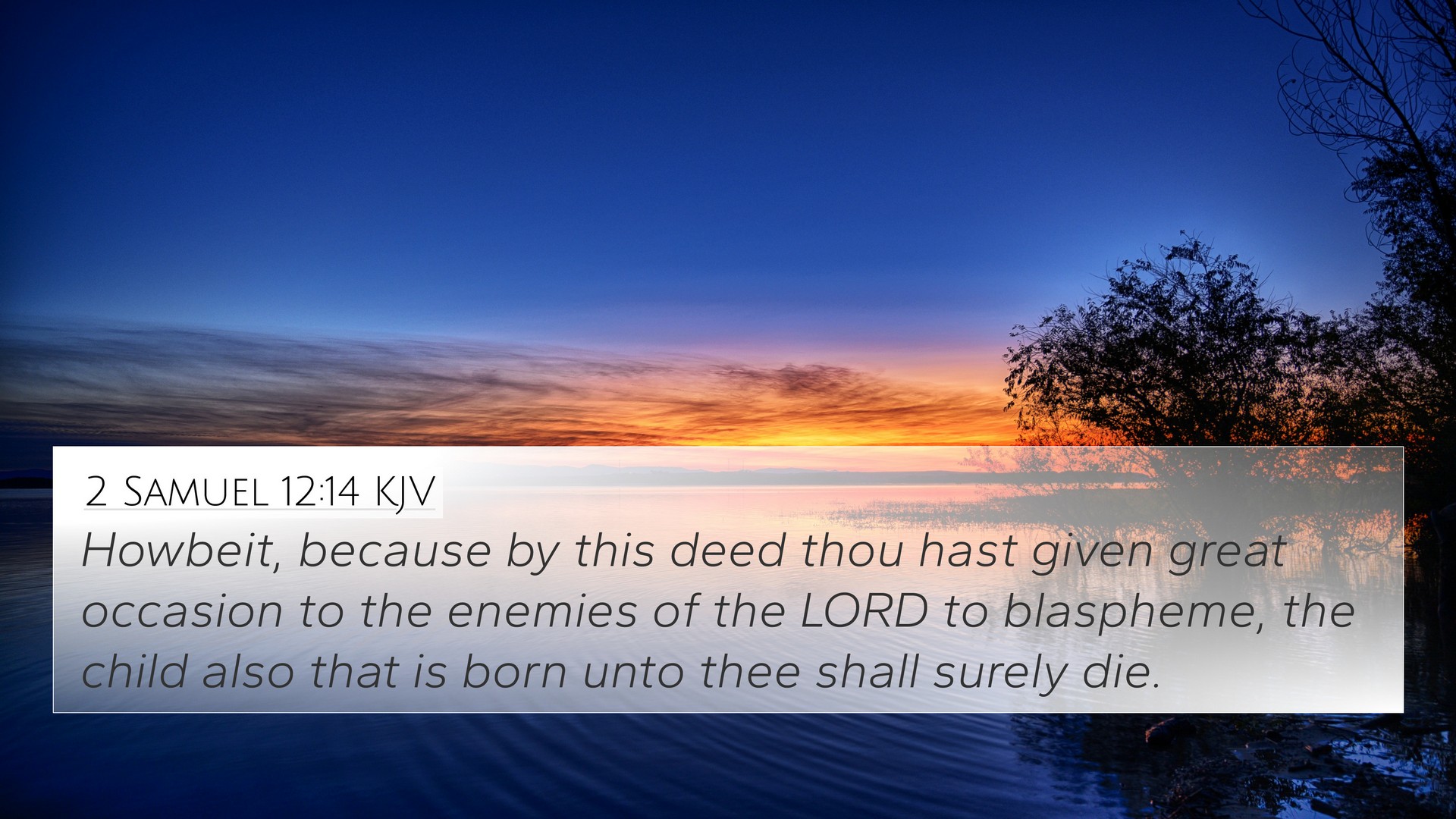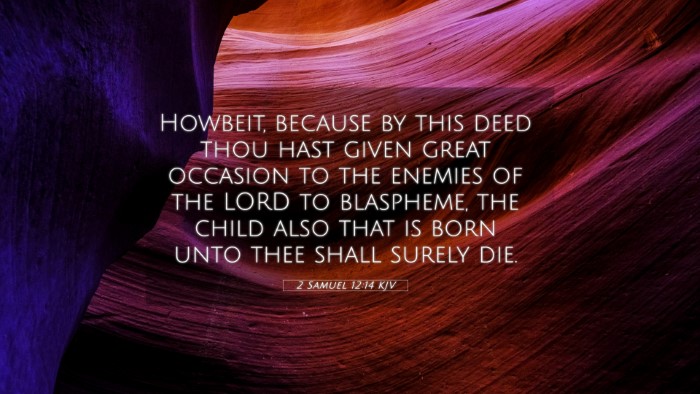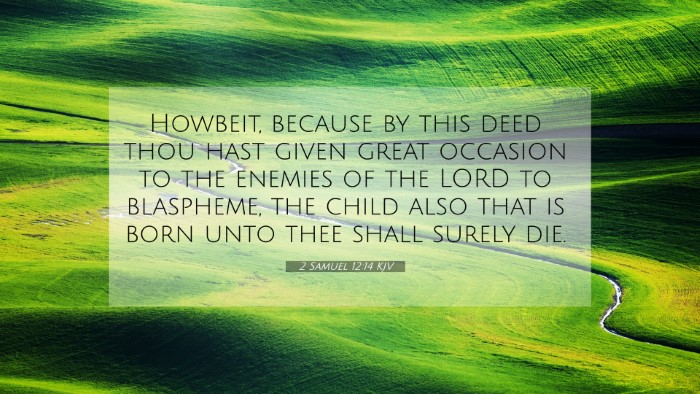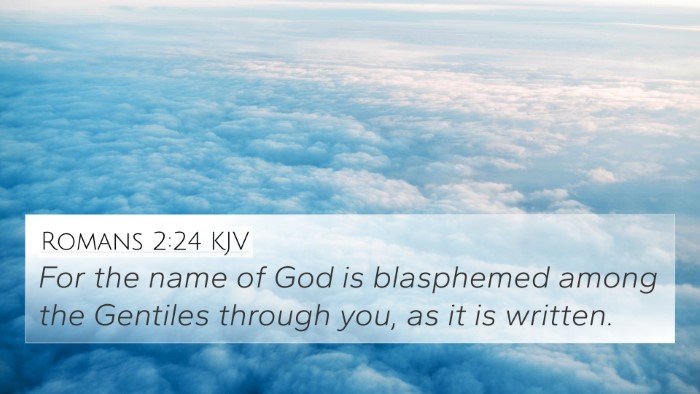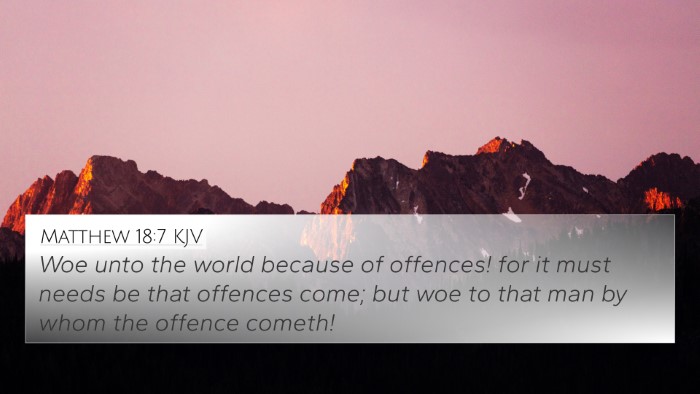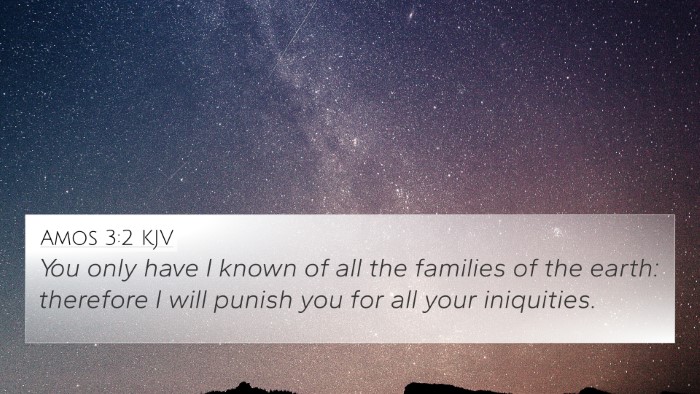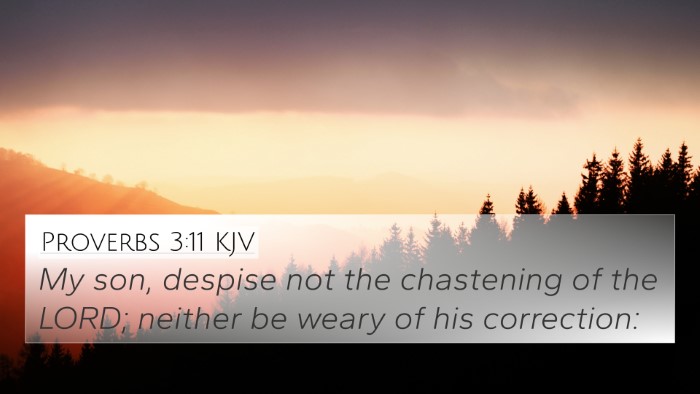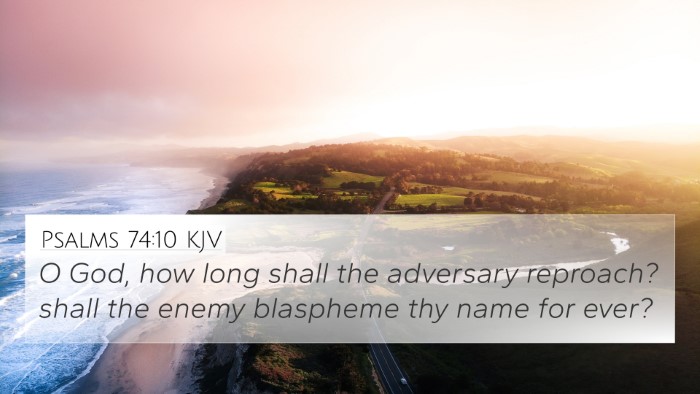Understanding 2 Samuel 12:14
Bible Verse: "Nevertheless, because by this deed you have given great occasion to the enemies of the LORD to blaspheme, the child also that is born unto you shall surely die." (2 Samuel 12:14 KJV)
This verse is part of the narrative in which the prophet Nathan confronts King David about his sin regarding Bathsheba and the murder of Uriah. It serves as a stern reminder of the consequences of sin, not only for the sinner but also for others, reflecting the extensive reach of one's actions.
Summary of Insights
- Matthew Henry: Henry emphasizes the gravity of David's sin and how it has led to consequences not only for David but also for his family. This verse highlights the relationship between actions and their repercussions, especially in the context of leadership.
- Albert Barnes: Barnes points out the severe judgment pronounced on David, indicating that sin does not go unpunished. He notes that the death of David's child serves as a reminder of God's displeasure with sin, showcasing the serious implications of one's choices.
- Adam Clarke: Clarke interprets this verse as one of the hardest statements in Scripture, detailing how David's actions brought reproach upon God and His name. The loss of the child symbolizes the direct consequences of sin, where the innocent often bear the weight of the guilty's decisions.
Key Themes
The themes in this verse can be organized as follows:
- Consequences of Sin: The principle that sin brings about serious consequences is a core theme here. David's action not only affected him but also innocent parties.
- The Reputation of God: This verse emphasizes how the actions of believers can give occasion for God's enemies to blaspheme, reflecting on the importance of representing God honorably.
- Divine Judgment: The inevitability of divine judgment against sin is starkly presented, reinforcing the idea that God is just and will hold His people accountable.
Cross References
The following Biblical texts provide insightful connections and further understanding of the themes presented in 2 Samuel 12:14:
- 2 Samuel 11:14-15: The account of Uriah's death illustrates the direct lead-up to David's punishment.
- Galatians 6:7: "Do not be deceived: God is not mocked; for whatever a man sows, that he will also reap." This aligns with the concept of consequences for sin.
- James 1:15: "Then when lust has conceived, it gives birth to sin; and sin, when it is full-grown, brings forth death." It highlights the progression of sin leading to death, similar to the fate of the child.
- Isaiah 53:5: Pertaining to suffering and salvation, offering a foreshadowing of Christ's ultimate sacrifice for the sins of humanity.
- Matthew 5:16: The imperative to let one’s light shine before others to glorify God, contrasting the blasphemy detailed in this passage.
- 1 Chronicles 21:17: Another narrative involving David recognizing the connection between his actions and the suffering of others.
- Luke 14:11: The principle of humility and the recognition of divine sovereignty and authority over our lives.
Reflections on the Meaning
As we reflect on 2 Samuel 12:14, several critical insights emerge that can be applied to our spiritual lives:
- Awareness of Sin's Impact: Individuals must recognize that their sins can have wide-reaching consequences, affecting not just themselves but also their families and communities.
- God's Holiness: The importance of understanding God's nature as holy and just, where sin cannot go unpunished.
- Responsibility in Leadership: Public figures, especially those in religious and moral leadership, should lead by example to avoid misrepresenting God and leading others astray.
Applying the Insights
Incorporating the lessons from 2 Samuel 12:14 into our lives can be fruitful through:
- Personal Reflection: Regularly assessing our actions and their alignment with our faith and the repercussions they may carry.
- Community Accountability: Engaging in discussions within faith communities to guard against sin and encourage one another toward righteousness.
- Biblical Literacy: Studying the Scriptures with a focus on cross-referencing to understand the greater narrative and implications of God’s laws and mercy.
Creating Connections in Scripture
The examination of 2 Samuel 12:14 not only stands alone but connects to many other Bible verses, offering a deeper dialogue about sin, accountability, and the nature of God. For those seeking to understand how this verse links to broader themes and messages, the following approaches can be beneficial:
- Cross-reference Bible Study: Utilizing tools such as Bible concordances and reference guides can aid in linking scriptures that discuss sin and its consequences.
- Thematic Exploration: Identifying recurring themes of repentance, judgment, and grace throughout the Bible enhances the understanding of this passage's context.
- Inter-Biblical Dialogue: Engaging with both Old and New Testament scriptures allows for a comprehensive view of God’s character and expectations of His followers.
Through careful cross-referencing and examination of Biblical texts, believers can deepen their understanding of the profound messages contained within 2 Samuel 12:14 and develop a more meaningful relationship with God's Word.
